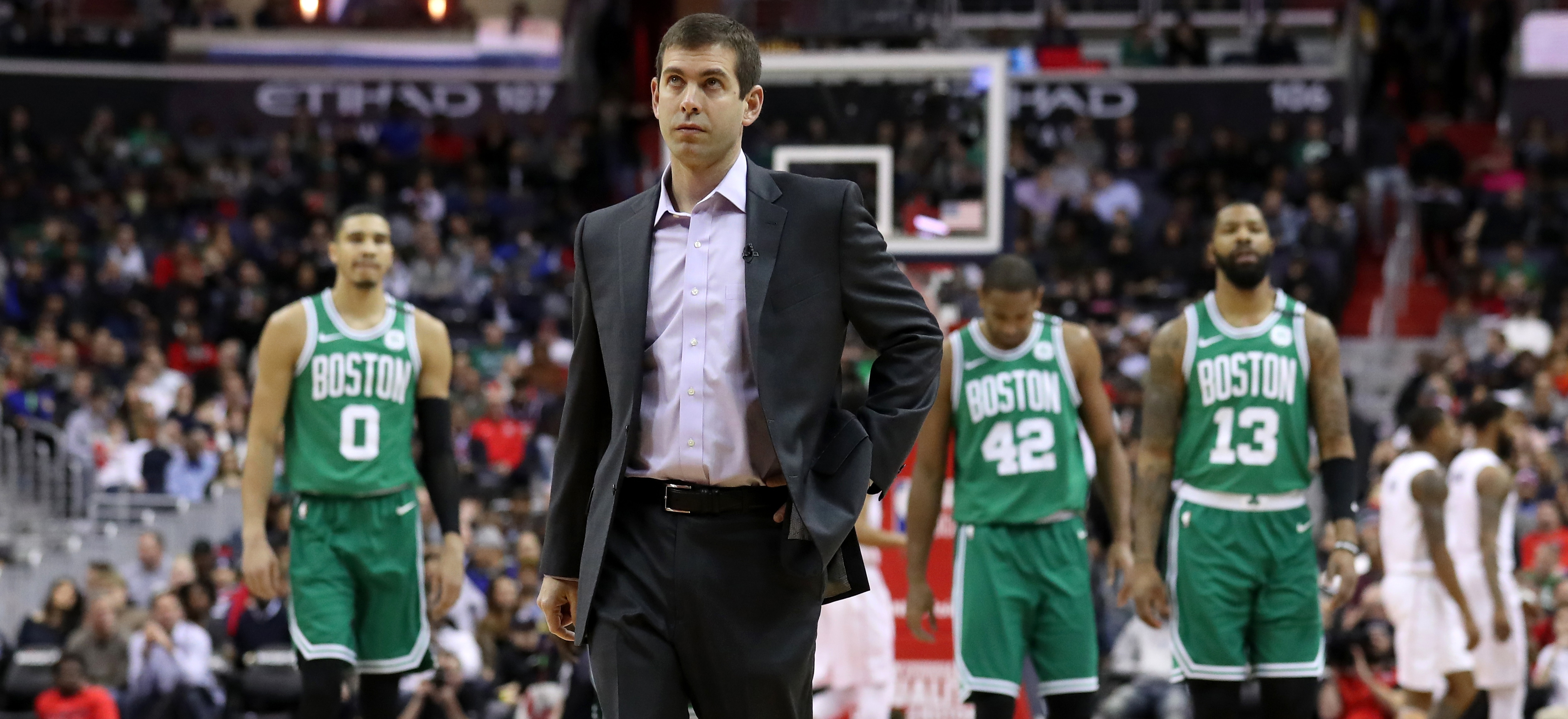addByline("Marc D'Amico", "Celtics.com", "Marc_DAmico");
WALTHAM, Mass. – Brad Stevens showcased passion and foresight Saturday afternoon in regard mental health wellness, a topic that was brought to the forefront of professional sports in recent weeks after All-Stars DeMar DeRozan and Kevin Love each went public with their stories of mental struggles.
Stevens likened mental health wellness to physical wellness, saying that if the Celtics tape their ankles every day, they should also take care of their mental health every day. As such, in a move that was far ahead of the curve, Stevens hired a mental-health expert to be available to team members and their families at the onset of the season.
“At the start of the season we have actually had a local expert in that area come and speak to our team,” Stevens revealed after Saturday afternoon’s practice. “They’re available a couple of times a month [at the practice facility] and available at any time when players need it, for the course of the year, for anyone, for friends, loved ones, anybody.”
Stevens displayed a passion for the topic, which is rooted in the early stages of his professional career. Well before he turned to coaching basketball as his profession, Stevens was a marketing associate for pharmaceutical giant Eli Lilly. That profession opened his eyes to the importance of mental health awareness.
“When you work in the pharmaceutical industry you realize that there’s a lot out of people’s control, and there’s ways that people can be helped,” he said, noting that the top two drugs he monitored while at Eli Lilly were Prozac and Zyprexa, both of which treat mental disorders.
“If we can do something to help show people that it’s not only OK – we encourage asking for help, because we take care of everybody’s physical needs all over the place, we should all be on top of all of our mental needs and wellness needs.”
Stevens made it a priority to employ such beliefs in his coaching strategy.
“I think the first assumption as a coach can’t be that we just have to run harder or do it tougher,” he said. “You have to understand that everybody is a human being and you have to understand that everybody has things that they’re dealing with.”
The players have not glossed over Stevens’ unique understanding of the topic. His decision to make a professional available at all times has strengthened an already-strong belief by the team that their coach cares more about them as people than he does about wins and losses.
“That’s what’s crazy – Brad was preaching this about mental health before all of this really became public,” Marcus Smart said, in reference to DeRozan’s and Love’s recent stories. “That just shows who Brad really is. He’s thinking about others. He’s one of those guys that we count on. He’s part of our support system, and for him to be able to do that for us, it’s big.”
Especially to these players, who are not conditioned to think about mental health wellness. They develop in an environment that is not conducive to sharing thoughts, feelings and emotions. Instead, they are taught to battle through adversity and to keep thoughts, feelings and emotions internal.
“I think we’re [raised] to feel like we can do everything on our own; if you ask for help, it’s a sign of weakness,” explained Smart. “But unfortunately, it’s not that way. You do need help. You can’t do it on your own.”
NBA players may seem like superheroes to young fans, but in reality, they are everyday humans who also face the harsh realities of life.
“Some people do forget that we do have lives outside of basketball, and just like everybody else, we go through hard times and things like that,” Smart commented. “So you’ve got to have a great supporting cast around you that are there for you and are genuinely there for you and want the best for you.”
There is no doubt that Brad Stevens is one of those people for the Celtics. He cares about his players. He cares about their families. And he is not naïve enough to believe that mental health wellness is a given for them.
Stevens has a unique perspective into this topic, and he is using that perspective to help to better the lives his team and to let the world know that asking for help isn’t only OK – it’s encouraged.

